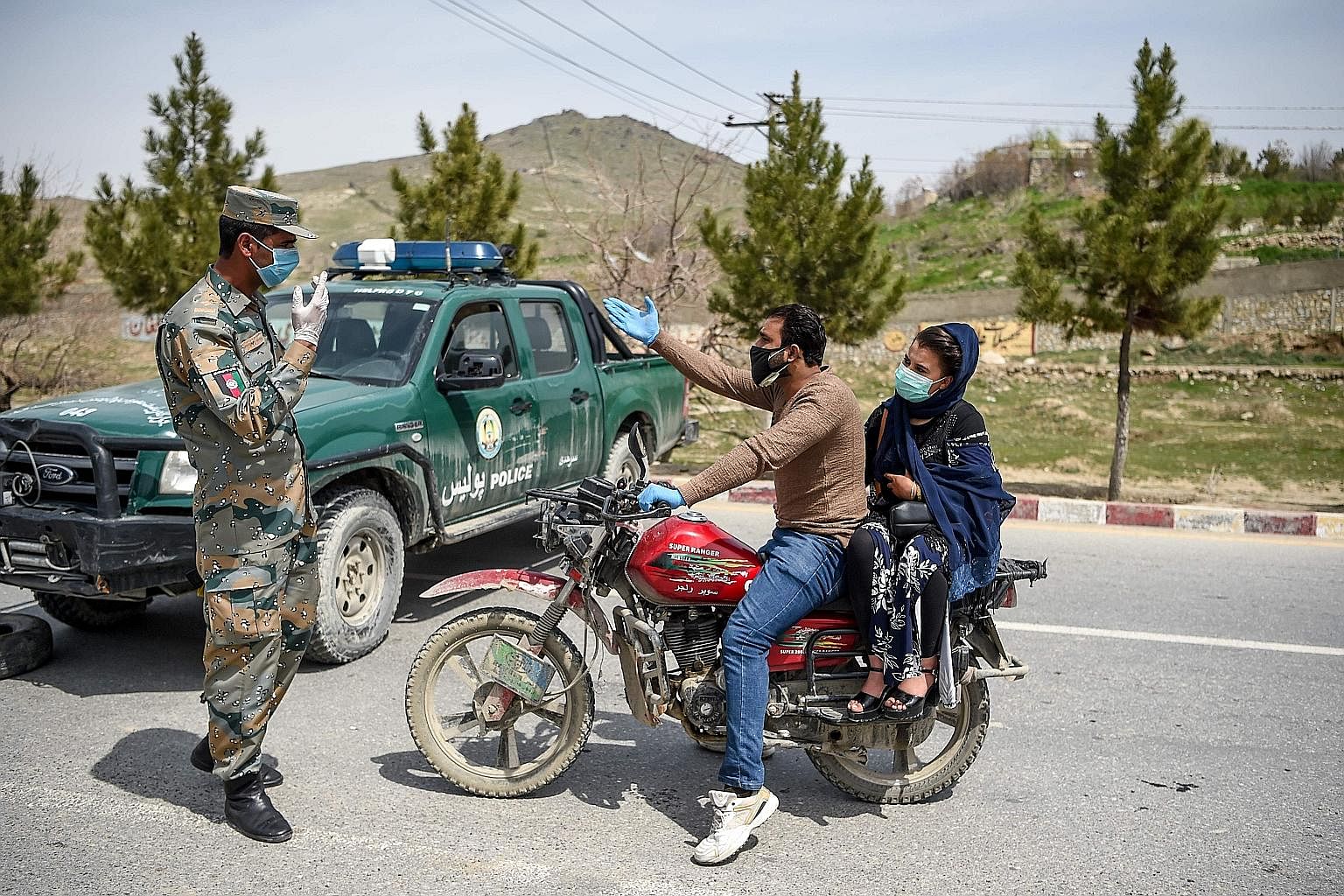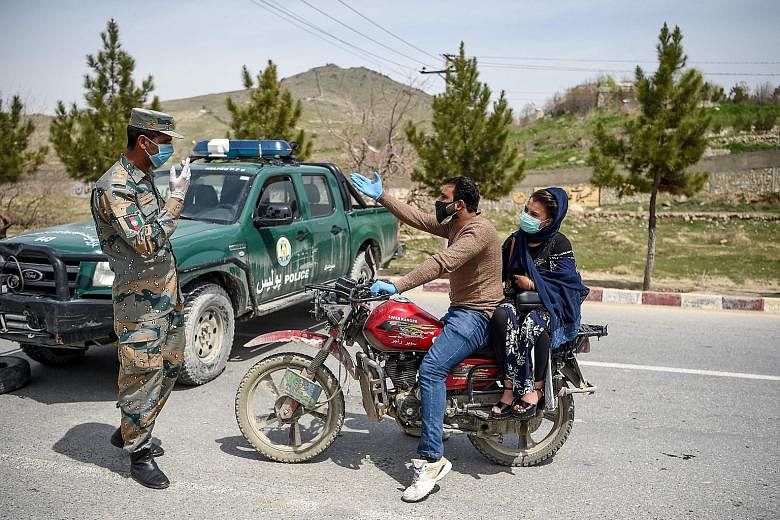The Covid-19 virus may have brought much of the world to a standstill, but it has not ended conflict.
In fact, there is a growing danger that some are exploiting people's distraction to advance their own interests. Coming at a time when there is not the capacity to either respond directly to the threats or marshal the diplomatic wherewithal to stop problems from escalating, there is a real danger that it is not just the world's economies that will be irrevocably damaged in the post-Covid-19 world, but our national security environment as well.
The problem is articulating itself in different ways, among adversaries large and small.
In many cases, the activity is an extension of existing issues - part of the general feeling of acceleration that is being driven by the crisis. But coming when most governments are focused on disease relief at home, there is little surge capability available to respond adequately.
Those who can respond - for the most part, the United States - are moving quickly to escalation, with all the risks that come with it.
China's recent activity in the South China Sea is a good example of this. Beijing's behaviour is not in itself new. With its nine-dash map, China has long made claims to much of the waterway and the atolls, reefs and islands that some countries in South-east Asian consider theirs.
But the recent decision to push at them by renaming sea features and establishing districts over disputed areas suggests that China sees an opportunity in further changing the realities on the ground and creating a context that will be difficult for others to push back on without engaging in some form of conflict.
Beijing's behaviour has not gone unnoticed, with the US dispatching vessels to support South-east Asian partners. But this comes at a difficult moment, when South-east Asian countries are seeking to work with China to help manage the pandemic they face, and also hopeful for the country to rapidly turn its economy back on to boost regional growth once again.
The danger of confrontation is high given that managing relations between the two big powers is not the easiest in the best of times, even more so now with the region in the grip of the pandemic.
Big power rivalry aside, the pandemic is undermining the fight against terrorism.
Terrorist-fuelled conflicts in Africa have seen a rise in violence as Western forces find themselves increasingly stretched by the Covid-19 crisis. In Mali, Spain drew down a substantial proportion of its forces there, while France has seen some of its forces in West Africa fall sick and suspended some maritime operations. Over in East Africa, Interpol was forced by Covid-19 to suspend its regional intelligence coordination mission.
Terrorist groups have been quick to take advantage.

In West Africa, Al-Qaeda's local affiliate gleefully celebrated the foreigners' difficulties as reports from Mali suggest that militants are getting within reach of the capital Bamako. In East Africa, an Islamist-fuelled insurgency in northern Mozambique continues to escalate and is taking a trajectory that increasingly resembles that of Boko Haram, the terrorist group that continues to ravage Nigeria's north and neighbours. Groups across the Sahel are becoming more ambitious and aggressive, with soldiers, civilians and fighters killed in growing numbers.
This pattern is also visible in Asia. In the holiday spot of the Maldives, the Islamic State in Iraq and Syria has claimed responsibility for its first attack amid a growing number of violent incidents in the country, including attacks on foreign visitors. In Afghanistan, the peace process appears to be barely holding together amid continuing violence.
Both the Maldives and Afghanistan also face Covid-19 outbreaks of unknown magnitude and are likely going to struggle to manage both a pandemic and terrorist attacks at the same time.
Again, outsiders have tried to step in to help, but the assistance is sporadic and mostly focused on providing medical aid, without focusing on the escalating security problems. A brief visit by Secretary of State Mike Pompeo showed the US' concern with the Afghan security situation, but was not enough. In fact, the rush to exit from Afghanistan by the US risks leaving chaos in its wake that will have wider repercussions across the region.
In the meantime, Western powers have to contend with sabre-rattling and other provocative actions from the likes of Russia, Iran or North Korea. In a time of great distraction elsewhere, there are few moderating influences available to try to de-escalate these situations.
What Covid-19 has done is to act as an accelerant to the fires already burning in various hot spots around the world. If not contained, the conflicts will be hard to unwind. With the US and China on a path towards collision, there is increasingly little space for diplomacy.
Material changes on the ground, like claimed territories or cities taken over by terrorists, will not be easily reversed without conflict.
It is understandably difficult to get governments to focus on much else at the moment. Controlling the virus, saving lives at home and finding ways of getting economies moving again are clearly the immediate priorities.
But we are in danger of missing shifts happening in our national security environment that could lead to conflict or escalation beyond the point of control.
Without more attention being paid to these other problems, when the world starts up again after the contagion is over, we may find the geopolitical environment strategically altered for the worse.
• Raffaello Pantucci is a senior visiting fellow at the S. Rajaratnam School of International Studies.











